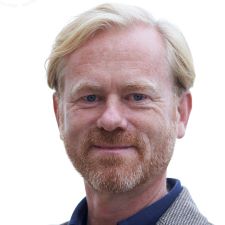Strategic Listening – an Ignored Resource for Communicators
There is a built-in paradox of the inherent human need to listen. But does listening solely entail “opening” the ears and taking in what other people are saying? No, listening can be challenging to practice and master. Most of us have experiences of failed listening, and we know that listening is not easy, no matter how much we want and try to listen to others. Many obstacles make it difficult for us to listen, and precisely this paradox is as such interesting.
Listening has an incredible power, which seems to be a forgotten component in communication. Despite the increased use of digital communication channels that offer many opportunities for dialogue and listening, the focus is still mostly on conveying information to influence the perception of others. Informing and disseminating information is not nearly as effective as involving others and listening to them.
To be successful with communication, organizations need to take a more strategic approach to listening. Even though there currently is a lot of listening going on, a holistic approach to listening is still missing. Different kinds of listening take place locally in the organization, here and there, for example, managers who are good at listening and affirming their coworkers or coworkers who listen to customers or users. Listening is thus scattered. But the question is whether there are any objectives for listening, ideas of who should listen, when it should happen, and so on.
One vital question remains to be answered. Who should be responsible for and in charge the development of organizations‘ strategic listening? We firmely believe that communication professional should take that role – to plan, organize, educate, and coordinate strategic listening. Communication professionals are the communication experts of organization, communication is a question of taking (i.e. informing) and listening. By focusing more on listening it will become easier for communication professionals to prove their value in organizations.
What we do
Anette Svingstedt is a senior lecturer in service management and service science at Lund University. She has had a 20-year management career in the private sector in industries such as hospitality and travel. Anette has been a manager, partner, and CEO in these businesses. During these years, Anette’s interest and commitment to leadership in service businesses were nourished. In 2012, she obtained her PhD in service science with a thesis on customer encounters and how the critical meeting between the organization’s representatives and those it serves needs to be managed and organized from a strategic service perspective. Since her PhD, she has researched and taught service management, leadership, value creation, and sustainable services. Anette has also served as head of the Department of Service Management and was responsible for an operation with approximately 70 coworkers. In addition to her dissertation, Anette has written opinion articles; book chapters on customer meetings; and scientific articles on value creation, professionalism, and leadership. Since 2002, Anette has also worked as a consultant and lecturer in the private and public sectors.
Mats Heide is a professor of strategic communication at the Department of Strategic Communication, Lund University. Since 1995 he has researched social media and organizational learning, change communication, crisis communication, and professional studies on communication practitioners. Mats is the author and co-author of 16 books and many book chapters and articles. He has written several textbooks on strategic communication, organizational communication, and crisis communication. Mats work also as a consultant for organizations.
Anette:
Mail: Anette.Svingstedt@ses.lu.se
Website: www.ses.lu.se/anette-svingstedt
Mats:
Mail: Mats.Heide@isk.lu.se
Website: www.isk.lu.se/mats-heide



